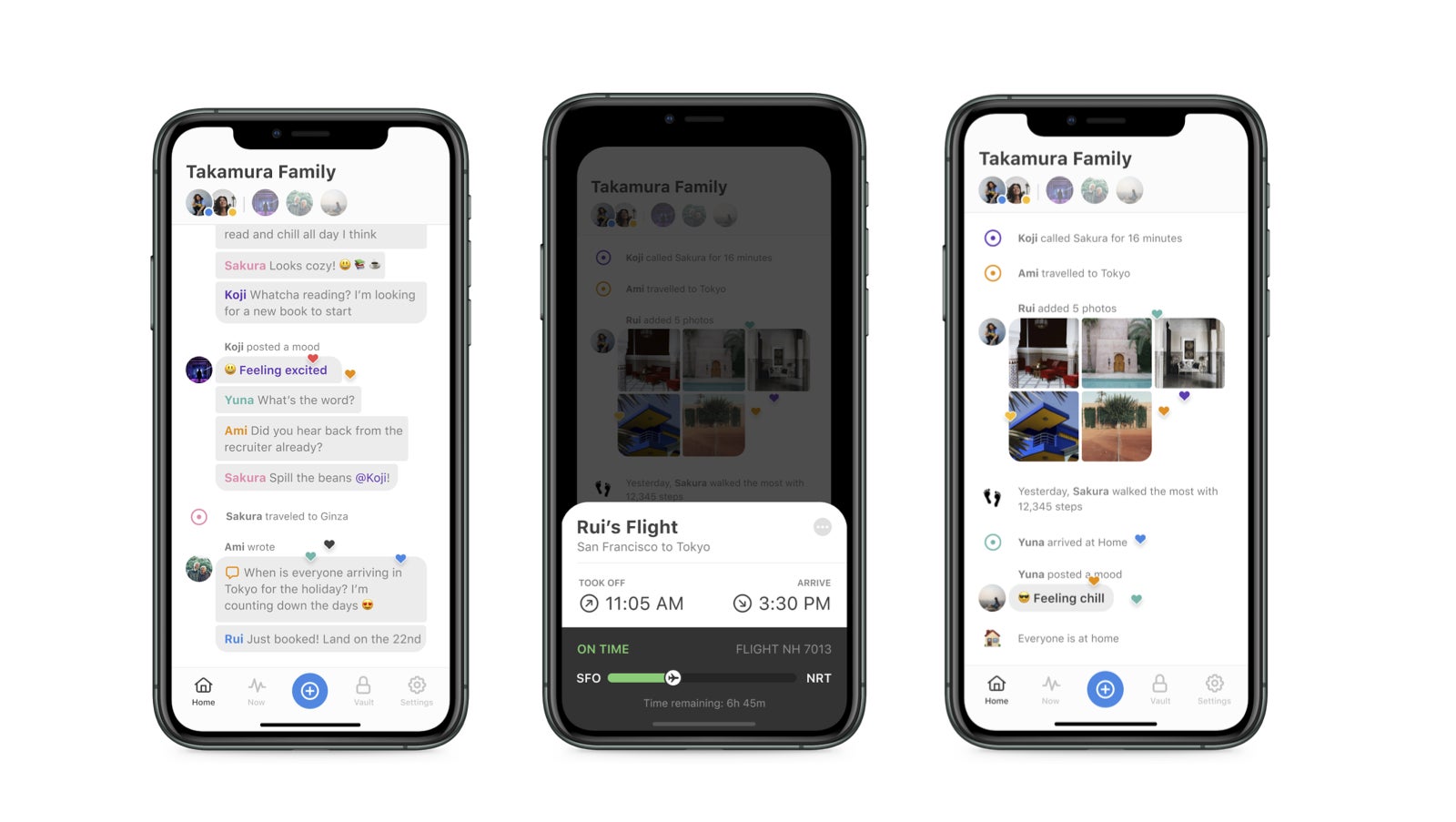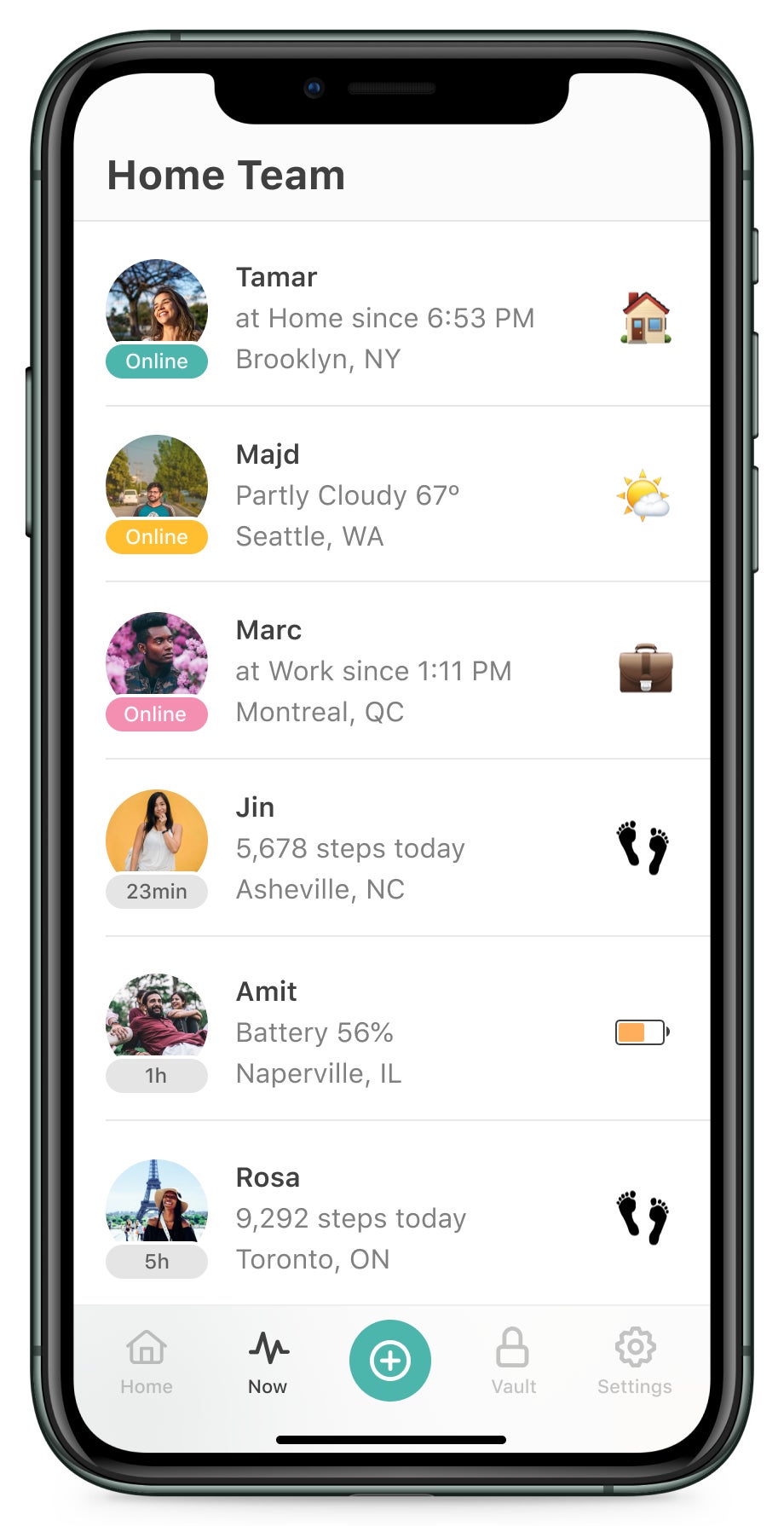Former Facebook employees are creating Cocoon, a social media network for your family
Social media contains a paradox: Our most distant acquaintances are often the ones we see most of online. In the algorithmic quest for engagement, services like Facebook and Twitter have injected a steady diet of outrage and falsehoods into our stream of baby photos and updates about last Sunday’s eggs Benedict.


Social media contains a paradox: Our most distant acquaintances are often the ones we see most of online. In the algorithmic quest for engagement, services like Facebook and Twitter have injected a steady diet of outrage and falsehoods into our stream of baby photos and updates about last Sunday’s eggs Benedict.
The original aim of social media to weave our real-life social networks closer together has unraveled in the face of advertising and propaganda campaigns to increase engagement at any cost. Facebook’s recent revision of its mission statement acknowledges as much. Its fresh purpose, to “bring the world closer together,” ditches its earlier aim to make the world “more open and connected,” which really just seemed like a convenient way to sell ads.
People aren’t abandoning social media. They are changing how they are using it. A 2018 survey by the Pew Research Center survey found while some Facebook users are moderating time on the site, social media use by US adults has doubled in the last decade: 72% of US adults are now on social media with every age group showing a steep increase. But people are posting more in private forums that cater to their personal community. Newer apps such as WhatsApp, Facebook Messenger, Snapchat and other messaging-oriented apps have all capitalized on this.
Yet one real social “network” has remained relatively untouched by Silicon Valley: one’s closest family. Many social networks cater to relatives, but few have made it their exclusive focus. The advertising business model precludes it. An imperative for attention means massive scale is the only way to survive, says Zoetanya Sujon of the London College of Communication. “Social media is the engine of data and surveillance capitalism,” she notes, “and this engine is fuelled by personal data collection.”
On Nov. 25, a new social network, Cocoon, arrives on Apple’s iOS just in time for the US Thanksgiving holidays. Earlier this month, I interviewed Cocoon’s co-founders Sachin Monga and Alex Cornell. The Y Combinator-backed startup, which has raised $3 million, is a social network for your family. Its been under development with a few dozen families, and is now open to everyone.

Monga, a former product manager at Facebook, was sitting in his office in the Mission district, one of San Francisco’s new startup clusters, when we spoke. For years, he said, he has been thinking about how to escape Facebook’s dilemma, which puts your mom and best friend in the same social network as your most distant acquaintance. It aggregates all this attention into a single, often alienating stream, to sell advertising.
But Cocoon bills itself as neither a social media network or a messaging app. “This is my home on my phone,” Monga said, showing his iPhone with the Cocoon app. It contains the latest updates from his mother and father in Toronto, his older sister in New York, and younger sister who recently moved to San Francisco. “We haven’t shared a physical home in 17 years, but we’re still a family, and we thought there should be sophisticated software to handle that,” Monga said. “It’s seemingly obvious that there should be an app on your phone for the most import people in your life.”
Each person can pick up to a dozen people to join their group, or cocoon. That might be your parents, or it could be your college roomates. The company calls it your “chosen family.” Since each person can only belong to one group (for now), it also forces people to make choices. Spouses have set up separate Cocoons to avoid mixing in-laws, and chosen to add friends that already match their preferred social circle. For now, Cocoon is free, but will switch to paid subscriptions.
People can post updates, emojis, and notifications, and Cocoon will thread these conversations automatically. The app also supports automatic updates, “ambient sharing” in tech parlance, giving your fellow Cocoon members a running stream of insights about the location, movement, and activity, and of you and your fellow members. It’s a degree of sharing uncomfortable in a public forum. Where do you sleep at night? Are you working late? How often are you going to the gym? Privacy settings let you share it all automatically.

That mimics the experience of actually living in the same place as your family. While group chat apps like WhatsApp are a feed of chronological posts, Cocoon groups conversations into clusters to avoid overlapping threads and status updates of everyone’s everyday life. “We wanted to remove all barriers to sharing mundane moments or interactions,” Monga said. “It’s up to us as technologists to help people communicate as they want.”
Cocoon is betting that the online pendulum is swinging away from the open world of the early web to the more closed networks dominating our analog lives. It’s not alone.
“The future is private”
Last year at F8, Facebook’s annual developer conference, Facebook CEO Mark Zuckerberg announced the future of social media was private. He wasn’t making a prediction so much as relaying what is already happening. People are migrating to private channels and groups on Facebook, Instagram, and WhatsApp (all of which share data and fall under Facebook’s ownership). But finding a business model that doesn’t rely on outrage and “indignant disagreement” to drive engagement is finally on Silicon Valley’s radar after years trying to replicate Facebook and Google’s success.
That’s giving Cocoon and others a path to profitability, or at least an exit, that doesn’t depend on exponential growth or being acquired by Facebook, Graham Brown of Lerer Hippeau, an investor in the company, argued. “People are becoming increasingly comfortable paying for digital goods and services that improve their lives,” he wrote by email. “If Cocoon succeeds as a product, it will make you feel closer to your loved ones.”
Cocoon wouldn’t be the first one to try this. A host of alternatives to Twitter and Facebook have come on the scene only to see their fortunes fade. In 2012, App.net debuted as a paid, ad-free alternative to Twitter, but closed in 2017. In 2016, the unexpected success of open-source platform called Mastodon led to speculation it was the next coming of Twitter. While some have built private social networks on the service, beyond unwelcome popularity among alt-right and white supremacist groups, public interest has sputtered. Recently, Wikipedia’s founder Jimmy Wales announced a new paid social network, WT:Social, that says it’s dedicated to supplying news while weeding out trolls and fake news. It too has shown promise—it now has 78,000 members paying $100 per year—but it’s too early to know if it has staying power.
Today’s launch of Cocoon represents Silicon Valley’s latest attempt to carve out a paid, private and personal model in Facebook’s domain. People have begun to treat sites like Facebook as tools for necessary communication rather than places to socialize. Whether Cocoon succeeds or not, its arrival suggests the future belongs to more personal, useful social networks.